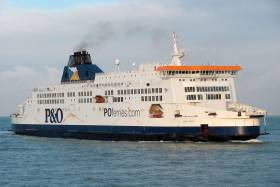Displaying items by tag: Calais
French Channel Port of Calais Completes Major Ferry Infrastructure Extension
At the French channel port of Calais yesterday, a €863 million major infrastructure extension was inaugurated that aims to significantly facilitate the transit of freight and passenger ferry traffic.
The port extension, which has taken six years to complete, sees the creation of three ferry stations with “floating gangways” allowing passenger and heavy goods vehicles to be loaded and unloaded on four lanes simultaneously compared with two previously, offering a time saving of 30% per stopover.
A 3-kilometre sea wall has been built, 65 hectares of land has been landscaped, including 45 hectares reclaimed from the sea, and 39 buildings for the operation and reception of port customers have been built too.
LloydsLoadingList has more on the ports UK counterpart at the Port of Dover, which also welcomed newcomer Irish Ferries onto the premier short-sea route in June.
English Channel Ferry Runs Aground In Calais
#FerryNews - An English Channel ferry with more than 200 passengers on board has run aground at Calais, according to the Guardian.
Local officials in the French port town report that there were no injuries when P&O’s Pride of Kent grounded on what is likely a sand bank in the harbour when attempting to depart for Dover amid severe weather this afternoon (Sunday 10 December).
The ferry is said to be “stable” and it is hoped that passengers can be transferred to another vessel today.































































